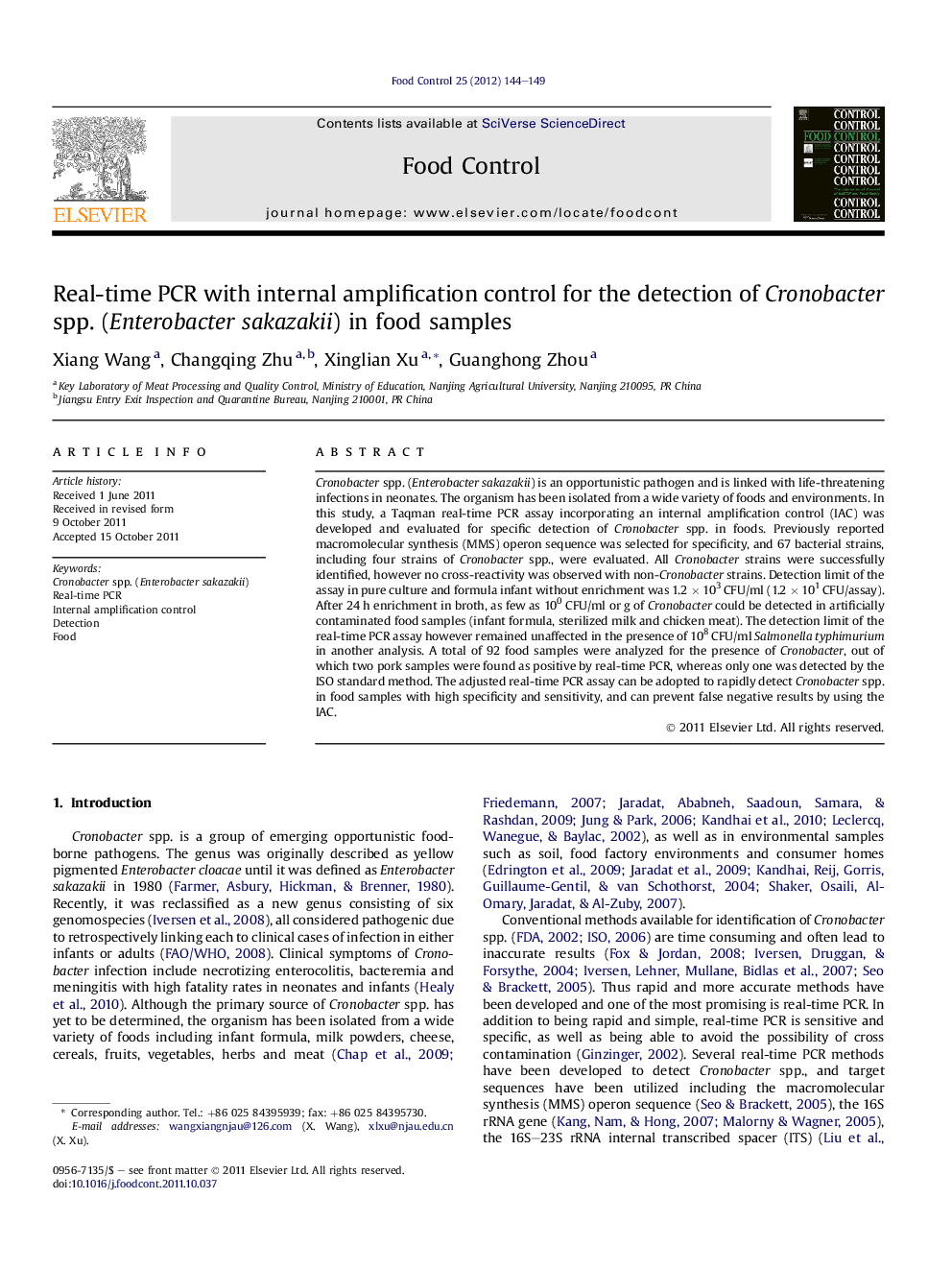| Article ID | Journal | Published Year | Pages | File Type |
|---|---|---|---|---|
| 6394094 | Food Control | 2012 | 6 Pages |
Cronobacter spp. (Enterobacter sakazakii) is an opportunistic pathogen and is linked with life-threatening infections in neonates. The organism has been isolated from a wide variety of foods and environments. In this study, a Taqman real-time PCR assay incorporating an internal amplification control (IAC) was developed and evaluated for specific detection of Cronobacter spp. in foods. Previously reported macromolecular synthesis (MMS) operon sequence was selected for specificity, and 67 bacterial strains, including four strains of Cronobacter spp., were evaluated. All Cronobacter strains were successfully identified, however no cross-reactivity was observed with non-Cronobacter strains. Detection limit of the assay in pure culture and formula infant without enrichment was 1.2Â ÃÂ 103Â CFU/ml (1.2Â ÃÂ 101Â CFU/assay). After 24Â h enrichment in broth, as few as 100Â CFU/ml or g of Cronobacter could be detected in artificially contaminated food samples (infant formula, sterilized milk and chicken meat). The detection limit of the real-time PCR assay however remained unaffected in the presence of 108Â CFU/ml Salmonella typhimurium in another analysis. A total of 92 food samples were analyzed for the presence of Cronobacter, out of which two pork samples were found as positive by real-time PCR, whereas only one was detected by the ISO standard method. The adjusted real-time PCR assay can be adopted to rapidly detect Cronobacter spp. in food samples with high specificity and sensitivity, and can prevent false negative results by using the IAC.
⺠A competitive IAC is constructed and included in an MMS-specific real-time PCR assay. ⺠The improved real-time assay is rapid, specific, sensitive and steady. ⺠Cronobacter spp. was first detected from pork sample in China.
